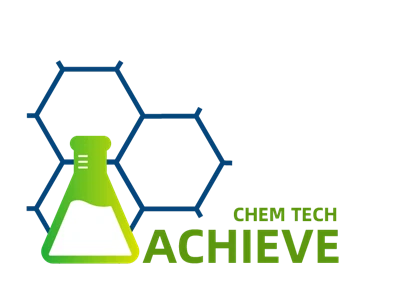The Application and Advancements of Tablet Press Machines in Pharmaceutical Manufacturing
May 30, 2024
Leave a message
In the realm of pharmaceutical manufacturing, the tablet press machine has been a pivotal tool in the production of solid dosage forms for decades. Its role in transforming powdered or granular ingredients into uniform, compressed tablets is not only crucial for maintaining the integrity of the active ingredients but also essential for ensuring patient safety and compliance.
Rotary Tablet Presses: These machines operate continuously, with multiple dies and punches rotating around a central axis. They are ideal for high-volume production.
Single-Punch Tablet Presses: As the most basic type, these machines use a single punch and die to compress the material into tablets. They are suitable for small-scale or experimental production.
Double-Rotary Tablet Presses: Combining the principles of rotary and single-punch presses, these machines offer higher output with two punches per die.

Products Description
1. Fundamentals of Tablet Press Machines
A tablet press machine consists of several key components, including the feed frame, die table, punches, and compression rollers. The feed frame ensures a continuous supply of the powdered mixture to the dies, where the punches compress the material into tablets. The compression rollers provide the necessary force to achieve the desired tablet hardness and thickness.
2. Applications in Pharmaceutical Manufacturing
Tablet press machines are used in various stages of pharmaceutical manufacturing. In the initial stages, they are utilized for research and development, where different formulations are tested to determine the optimal compression parameters. During production, the machines are employed to compress the final blend into tablets that meet stringent quality standards.
3. Advancements in Technology
Recent advancements in tablet press technology have significantly improved the efficiency and quality of tablet production. One such advancement is the incorporation of servo-driven systems, which provide precise control over the compression process, resulting in more uniform tablets with improved dissolution rates. Additionally, the use of intelligent sensors and automated quality control systems has reduced the risk of errors and enhanced product traceability.
4. Challenges and Solutions
Despite their widespread use, tablet press machines face several challenges. One major challenge is the variability in the physical properties of different drug formulations, which can affect the compression process. To address this issue, manufacturers have developed specialized punches and dies that are tailored to specific formulations. Furthermore, the integration of artificial intelligence (AI) and machine learning algorithms has enabled the machines to automatically adjust compression parameters based on real-time feedback from the process.
5. Environmental Considerations
With the increasing emphasis on sustainability in pharmaceutical manufacturing, tablet press machines are also being designed to minimize waste and energy consumption. This includes the use of energy-efficient motors and drives, as well as the implementation of waste reduction strategies such as recycling of scrap material and optimization of powder feed rates.
6. Future Outlook
The future of tablet press machines in pharmaceutical manufacturing looks promising. With the continued development of advanced technologies and materials, the machines are expected to become even more efficient, precise, and environmentally friendly. Additionally, the integration of AI and machine learning will enable the machines to adapt to changing production requirements and ensure the consistent production of high-quality tablets.
7. Impact on Patient Care
The advancements in tablet press machines have a direct impact on patient care. By producing tablets that are more uniform and have improved dissolution rates, patients can expect more consistent and effective treatment outcomes. Furthermore, the ability to customize punches and dies for specific formulations allows for the development of targeted therapies that are tailored to the needs of individual patients.
8. Regulatory Compliance
In the highly regulated pharmaceutical industry, compliance with regulatory requirements is crucial. Modern tablet press machines are designed to meet or exceed the strict standards set by regulatory bodies such as the Food and Drug Administration (FDA) and European Medicines Agency (EMA). By ensuring that the machines comply with these regulations, manufacturers can maintain their credibility and avoid costly delays in product approval.
9. Future Prospects
Looking ahead, the tablet press machine is poised for further advancements and improvements. With the advent of Industry 4.0 and the integration of artificial intelligence and machine learning, these machines are expected to become even more intelligent and autonomous. For instance, real-time data monitoring and predictive analytics could enable operators to identify potential issues before they arise, reducing downtime and enhancing efficiency.
10. Sustainability
In addition to technological advancements, sustainability is becoming an increasingly important consideration in pharmaceutical manufacturing. Manufacturers are exploring ways to reduce the environmental impact of their operations, including the use of energy-efficient tablet press machines. These machines are designed to minimize waste and consume less energy, reducing the overall carbon footprint of the manufacturing process.
11. Personalized Medicine
The trend towards personalized medicine is also expected to drive innovation in tablet press technology. As the need for customized therapies grows, manufacturers will require machines that can handle complex formulations and produce tailored tablets for individual patients. The flexibility and precision of modern tablet press machines will be crucial in enabling this shift towards more personalized treatment options.
12. Global Market
Finally, as the global demand for pharmaceuticals continues to grow, the market for tablet press machines is also expected to expand. Manufacturers will need to stay abreast of emerging trends and regulations to ensure that their machines remain competitive in the global marketplace.
Conclusion

In summary, the tablet press machine is an indispensable tool in pharmaceutical manufacturing.
Its role in transforming powdered ingredients into uniform, compressed tablets is not only essential for maintaining the integrity of the active ingredients but also crucial for ensuring patient safety and compliance.
With the advancements in technology and the continued efforts of manufacturers, the tablet press machine will continue to evolve and play an increasingly important role in the production of high-quality solid dosage forms.

